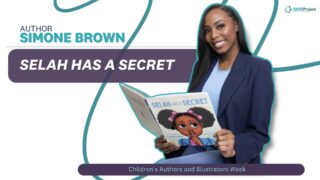
SAFE Project hosted a webinar recently for recovery housing owners and operators to learn about their options. If you missed the webinar, here is some educational information on economic relief available to help you navigate this challenging time. The status of different stimulus bills is fluid, so it’s vital to follow them closely.
In general, the Small Business Administration (SBA) is the voice of small businesses, providing counseling, capital, and contracting expertise. They have specific COVID-19 information on small business guidance, loans, and resources.
Matt Contardi, a person in recovery for the past eight years and President of Sharp Payroll Service, provided the following summary on several SBA economic relief options for small businesses based on having payroll or not.
These options are for all small businesses, regardless of payroll. Many recovery houses fall into this category.
- The Economic Injury Disaster Loan (EIDL) – provides an advance of up to $10,000 to businesses that are experiencing a temporary loss of revenue. The loan can be forgiven. Applications are filed directly through the SBA website. At the time of writing this blog, EIDL is unavailable due to exhausted funds, but that could change.
- Express Bridge Disaster Loan – provides a loan up to $25,000 and is noted for its fast turnaround. This loan, however, must be repaid in part or full by proceeds from the EIDL.
- SBA Debt Relief – is available for any small business with pre-existing SBA loans. The SBA will automatically pay (forgive) the principal, interest, and fees of current 7(a), 504, and microloans for six months. The SBA will also automatically pay the principal, interest, and fees of new 7(a), 504, and microloans issued before September 27, 2020.
- Federal Unemployment – Unemployment for Self-Employed Individuals provides an additional $600 from the CARES Act between April 1 – July 31, 2020.
These options are available to small businesses with payroll.
- Paycheck Protection Program (PPP) – applying for this loan is done directly through an SBA lender (bank). PPP is specifically for payroll costs, interest on mortgages, rent, and utilities and loan payments will be deferred for six months. No collateral or personal guarantees are required, and the loans are forgivable. At the time of writing this blog, PPP is unavailable due to exhausted funds, but that could change as well.
- Tax Deferment on Employer Contributions for FICA – allows employers to defer the deposit and payment of the employer’s share of Social Security taxes and self-employed individuals to defer payment of certain self-employment taxes. Available for those who didn’t receive the PPP.
- Employer Retention Tax Rebate – provides $10,000 per employee and is available for those who didn’t receive the PPP.
Outside of loans from the SBA, there are other funding options available.
- Stimulus Payments – also known as Economic Impact Payments. These payments are automatic for most taxpayers if you filed tax returns in 2018 or 2019, are a senior, or are retired. Keep in mind; some people may have to provide additional information to the Internal Revenue Service (IRS) to get your payment. Track your stimulus payment.
- Unemployment – Most states have expanded their unemployment assistance programs to provide for more Americans directly affected by the COVID-19. Visit your state’s unemployment website because laws are different in every state.
During the Economic Relief for Recovery Housing Operators meeting, SAFE Project invited recovery housing operators to share their first-hand experiences during COVID-19 and with seeking economic relief during this time.
Rogan O’Donnell is the founder of New Foundation Recovery House and in recovery. He operates a small, eight-person recovery house in Freehold, NJ. According to Rogan, his accountant was the one who informed him of the economic opportunities available and advised him to apply for the loans. His key piece of advice: be very mindful of what’s going on on the economic front and work with your local bank!
Doug Scott, Vice President Mission Advancement, Healing Place, Louisville, KY, is also a person in recovery. The Healing Place is a 1,000 person operation that includes veterans. For Doug, during the current pandemic and beyond, building relationships and a sense of community is key. In his case, once again, a local bank consortium called him letting him know to apply for PPP, and he was able to get two months of payroll covered. Doug’s advice: create an advisory committee that includes reps from local banks and legal. Including constituents in the community is vital because communities recognize the need for recovery houses. Build a case statement explaining the issue you’re addressing to get people to buy-into your cause. Advocate for yourself.
For Jason Jarreau, a person in long-term recovery and a Senior Manager of an Oxford House in Washington, D.C., things are a little different. With over 220 employees and 20,000 members, Oxford House doesn’t qualify as a small business. Members or Oxford House residents pay for the house and serve in officer positions. The houses make up chapters and state associations. Oxford House has been in existence since 1975, and to Jason, what makes it sustainable is the built-in family structure. Oxford house is pivoting to virtual meetings, checking in with staff, and helping members across the country because they rely on it.
It became apparent very quickly that loan programs are underfunded and are given on a first-come, first-serve basis. Rogan, Doug, Jason outlined key action items for recovery housing operators to take now to be prepared for if and when more funding becomes available. These action steps are important to take looking beyond COVID-19 as well to grow the financial stability of recovery houses.
- Establish a relationship with your local bank. They are the ones who are quickly filing and granting PPP Loans.
- Get your financial documents in order.
- Stay on top of grants and loan programs in your state.
Additional Resources:
- Non-Filers Payment Info
- Chamber of Commerce Directory
- SCORE Coronavirus Small Business Resource Hub
- Tips for Recovery Housing During COVID 19
- Recovery Housing Facebook Group
- SAFE Project Recovery Housing
SAFE Project wants to hear from you! In an effort to better serve you, we’re asking that you take a few minutes to fill out this survey: Recovery Housing – COVID-19 SBA Relief. Anyone who fills out the survey will receive the archive of the Economic Relief for Recovery Housing Operators meeting.
Before COVID-19, many recovery housing operators were running all aspects of the recovery houses themselves. Being a recovery house operator is truly a labor of love. SAFE Project is here for you because it’s our responsibility to serve the people in these houses, and during these times, we all need support. If you’re a recovery house operator and would like more information about how to help your community, contact community@safeproject.us.



